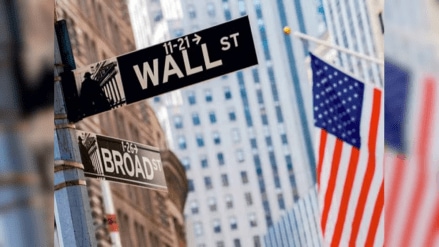The United States on Tuesday confirmed that steep new tariffs on Chinese imports—soaring to 104%—will take effect shortly after midnight, even as President Donald Trump’s administration rushes to initiate trade talks with key allies including Japan and South Korea.
The dramatic escalation in the US-China trade war triggered a fourth consecutive day of stock market losses. The S&P 500 slid below the 5,000 mark for the first time in nearly a year, closing 18.9% below its February 19 peak—just shy of the 20% threshold marking a bear market. According to LSEG data, companies listed on the S&P 500 have lost a staggering $5.8 trillion in value since Trump’s tariff announcement last Wednesday—the worst four-day fall since the benchmark’s inception in the 1950s.
While global markets initially held onto hopes of negotiation, fresh fears gripped Asia on Wednesday morning with Japan’s Nikkei suffering sharp declines. Asian markets are bracing for more volatility as Trump’s tariffs take hold.
Trump has scheduled immediate trade talks with close partners like Japan, South Korea, and Italy, whose Prime Minister Giorgia Meloni is expected to visit next week. But White House officials made clear that China will not be a priority in negotiations, as the administration accuses Beijing of retaliatory blackmail and vows to stand firm.
“These are highly tailored deals,” Trump said, emphasizing that over 70 countries have expressed interest in trade discussions. However, he underscored that the U.S. cannot accommodate everyone at once.
White House adviser Kevin Hassett confirmed that negotiations will initially focus on allies. Meanwhile, U.S. Trade Representative Jamieson Greer told lawmakers there are no immediate plans for exemptions or exceptions to the tariffs.
The measures are already shaking consumer confidence and corporate planning. Three out of four Americans expect prices to rise, according to a Reuters/Ipsos poll. Micron has warned of a surcharge from Wednesday, and apparel retailers are delaying orders and hiring. Running shoes made in Vietnam, currently retailing at $155, are expected to jump to $220 due to a new 46% tariff.
Canadian Prime Minister Mark Carney announced retaliatory 25% tariffs on some vehicles, stating, “President Trump caused this trade crisis — and Canada is responding with purpose and with force.” Though exempt from the latest tariffs, earlier U.S. duties on Canada and Mexico remain in place.
The European Union, already burdened by U.S. tariffs on cars and metals, is preparing 25% countertariffs on goods including soybeans and sausages. European pharmaceutical companies warned that Trump’s trade war could accelerate the industry’s migration to the U.S.
Despite calls from business leaders to reverse course, Trump remains defiant. In a speech to Republican lawmakers, he promised “major” tariffs on pharmaceutical imports to push drug manufacturing back to American soil.
As global markets tumble and consumers brace for higher prices, the world watches to see whether Trump’s aggressive tariff strategy will trigger economic recalibration—or deeper recession.
